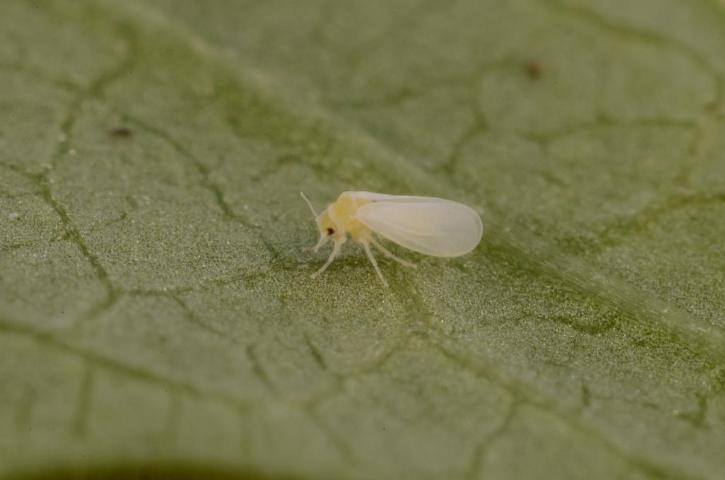
By Clint Thompson
Sanitation of vegetable crops susceptible to whiteflies remains a key management strategy for Florida producers.
Hugh Smith, an associate professor of entomology and nematology at the UF/IFAS Gulf Coast Research and Education Center, encourages growers to clean up their fields properly following harvest to reduce the risk of feeding damage and potential viruses.
“If you don’t make sure that you clean up last season’s crop, you’re almost sure to give yourself a problem,” Smith said. “If you plant new fields next to old fields that have whiteflies or virus in it, you’re going to have a problem. You’re going to lose money. The most important thing is to have that sanitation, cleaning up of finished fields. Let that be a priority and not an afterthought. It really has to be a production priority and a business strategy priority. If you don’t do it, you’re going to lose money.”
Whitefly Impact
Whiteflies cause feeding injury issues in vegetables and transmit two viruses: cucurbit leaf crumple virus and cucurbit yellow stunting disorder virus. According to University of Georgia crop loss estimates for fall 2017, the viruses caused between 30% and 50% of crop loss in squash and cucumbers and nearly 80% of crop loss in snap beans.
“Whiteflies are a problem, pretty much throughout Florida; south and north. Some years are worse than others. But it’s a pretty reliably bad problem, usually because of the viruses that are transmitted,” said Smith, focusing on tomato. “Between the area south of Miami, Homestead and the Immokalee area and then coming up towards Hillsborough, there’s not a lot of time where there isn’t tomato in the ground. That has a lot to do with (the whitefly problem).
“In Florida, everything is always overlapping. We don’t have a winter that’s going to give us a proper break from the pest cycle. So we have to try to incorporate a break in the cycle in the production system as best we can. The most reliable way to do that is to promptly destroy those old fields.”









